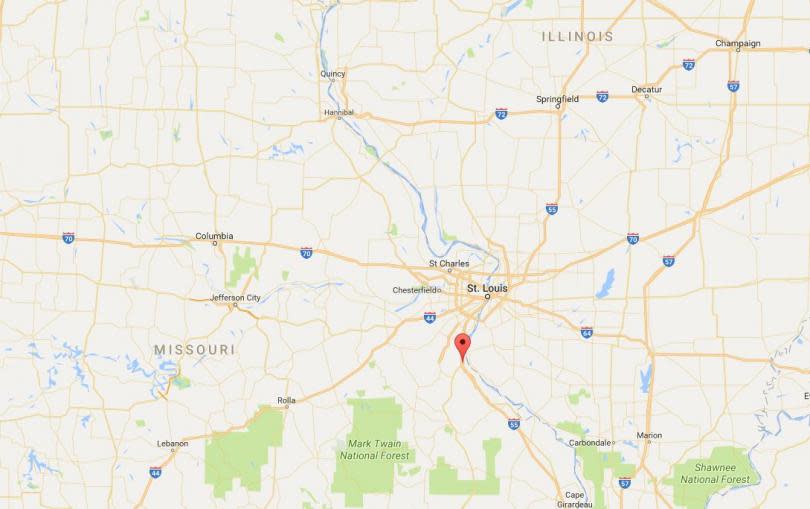US High School Students Ready To Take On The World In Rocket Launch Competition
A high school rocket club is going for a three-peat this week as it represents the United States in an international competition to launch a rocket to a certain height and safely land its cargo: one egg.
Students from Festus, Mo., are competing in the International Rocketry Challenge, part of the Aerospace Industries Association’s Paris Air Show, and hope to take home the third American title in as many years. The Festus High School rocket club is up against teams from France, the United Kingdom and Japan after it won a national contest last month in Virginia, beating out dozens of other teams from across the country.
Read: NASA Launches Students’ Mars Rover Designs
The students were tasked with building rockets that met certain specifications for size while also reaching a desired height and flight time and safely landing a raw egg that was launched with the rocket. The 10 students representing Festus, which is just south of St. Louis, took a simple approach to their design: It’s made of cardboard tubes.
“We were going against teams that had carbon fiber rockets, 3D printed rockets, and we show up with these spray-painted cardboard tubes and we win,” team data specialist Ed Bohnert told KMOV, St. Louis, when the students won the national competition.
While gearing up for the competition in Paris, the students explained how their creation works. Joel Marler, a booster engineer for the team, said they relied on the mineral salt ammonium perchlorate to make fuel to power the multistage vehicle — similar to the way NASA gets rockets off the ground.

Students from Festus, Missouri, launched a rocket that propelled them to a national championship and a trip to an international rocketry competition in Paris. Photo: InkHouse PR
It took a lot of trial and error: “I don’t know if you can count the amount of failed rockets that we had,” Marler told International Business Times.
Once the rocket gets off the ground and reaches the peak of its trajectory, it splits in two. One part is carrying the precious egg payload in its protective capsule to a safe landing, about a half-minute after takeoff, and the other contains the jettisoned booster, which is also lowered with a parachute.
Thankfully, the rocket team didn’t have to sacrifice many eggs to get their design off the ground.
“We haven’t broken an egg a single time,” Marler said. “We’ve broken plenty of rockets.”
The Festus students were scheduled to present their rocket Thursday and explain their engineering process before launching it Friday. During the preflight festivities Thursday, the American team will meet those from France, Japan and the U.K. to exchange gifts and get to know each other, rocket club member Grace Basler said.
Read: Indian Teen’s Tiny Satellite Will Go Into Space
“It’s exciting and it doesn’t feel real,” she told IBT. “Once we get [there] … it will become real.”
The current Festus club lineup is following in some big footsteps. Teams from the U.S. have won the international competition for the past two years. And Festus teams have been participating in the national competition, the Team America Rocketry Challenge, or TARC, for some time — the club’s current team mentor, teacher Devin Lorenz, was part of the Festus team that was a runner-up in the 2009 TARC.

On a cloudy and humid day in Virginia, students from Festus, Missouri, make final adjustments to a rocket before launching it to win a national championship and a trip to an international rocketry competition in Paris. Photo: InkHouse PR
The rocketry challenge has done more for the Festus High School kids than giving them a chance to represent their town and their country on an international stage. It also has shown some of them what career path they want to take. Team member Cydney Breier told IBT she had originally wanted to be an architect, but now would like to be an aerospace engineer.
Bohnert said he might have gone into a career in finance or accounting but now sees that this is something he enjoys and is good at. Without sponsors, which include aerospace and defense business Raytheon Co., supporting the team in the competition, Bohnert said, in a few years, “I would have been sitting behind a CPA desk.”
Robert Curbeam, a former NASA astronaut and Raytheon’s deputy of space systems, said one of the advantages of the competition is that it gets young people interested in the STEM fields — science, technology, engineering and mathematics — and some of the competition’s alumni have gone on to work in those areas.
“I’m excited, because the team is so excited,” Curbeam told IBT. “Their enthusiasm is contagious.”

Students from the local high school put their town of Festus, Missouri, on the national radar when they won a rocketry competition and a chance to compete on an international stage in Paris. Festus is just south of St. Louis. Photo: Google Maps
Related Articles


